The Western Balkans are on shaky political and economic ground. Swiss development cooperation is working in the region to improve economic and political prospects so that people have fewer reasons to leave. Three success stories illustrate these efforts.
Swiss-style apprenticeship
“Please try!” Irina Velkova, 18, holds out a plate with a pancake that she has decorated with lots of chocolate and powdered sugar. It smells wonderful in the school kitchen at Vancho Prke, the secondary school in Vinica, a small town in the east of North Macedonia. Today in the school kitchen Irina and her classmates are deepening their knowledge of food science, a subject that is part of their training as future food technicians. They are part of the first cohort slated to complete a four-year dual vocational training course at Vancho Prke at the end of the school year. The course is based on the Swiss model and is a mixture of school lessons and practical vocational training in a company. In addition to the prospective food technicians, Vancho Prke also trains machine mechanics, textile processors and freight forwarding and logistics specialists.
It is thanks to Switzerland that the dual vocational training system exists in North Macedonia: Helvetas initiated it on behalf of the Swiss Agency for Development and Cooperation (SDC). North Macedonia, like all countries in the Western Balkans, is suffering from a large exodus. Young people in particular are seeking their fortune abroad; the career prospects at home are too limited. Currently, around 1.6 million people still live in the country – over 700,000 have emigrated, mainly to European countries such as Italy, Germany or Switzerland. As a result, North Macedonia lacks an urgently needed workforce.
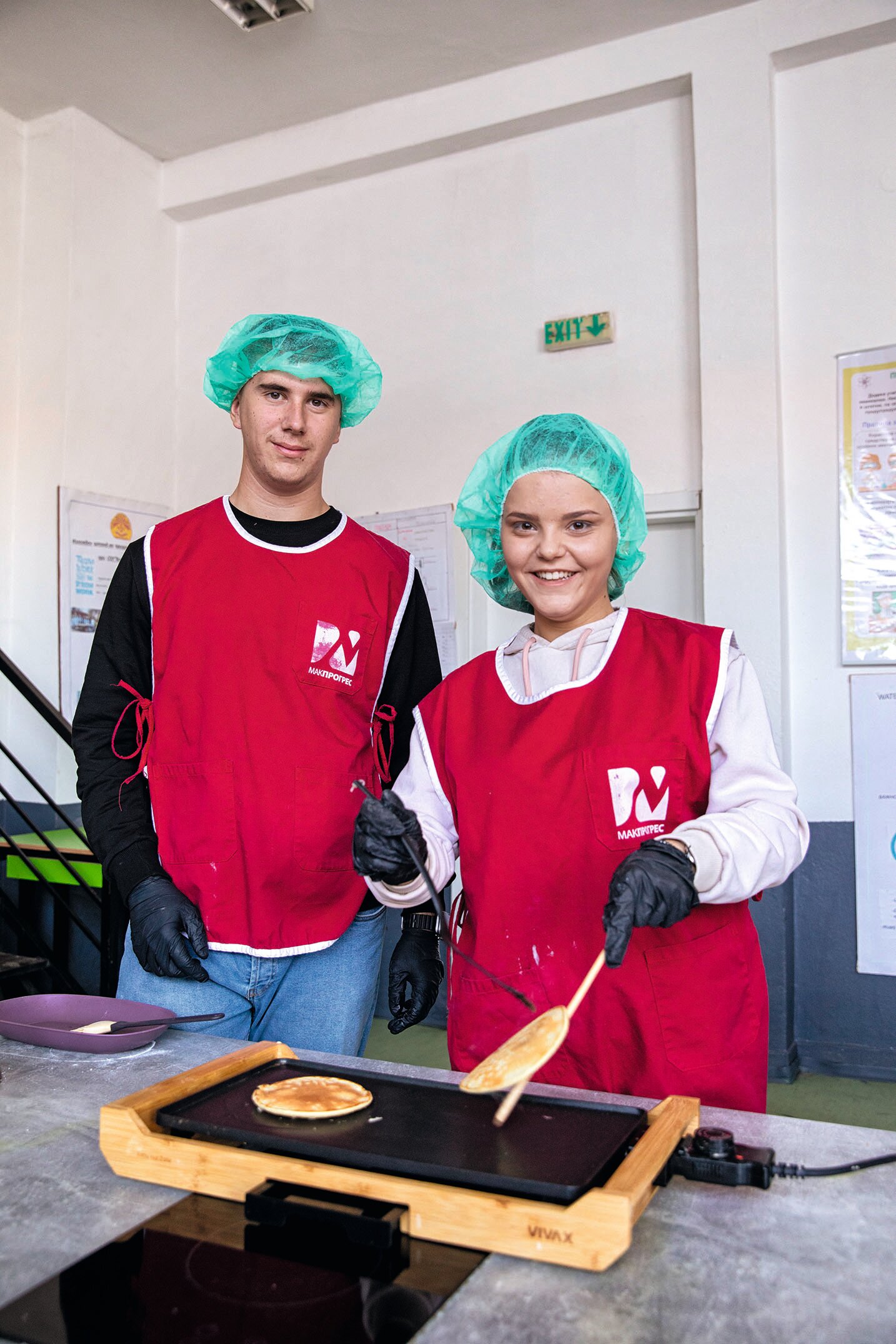
“We saw dual vocational training as a measure against emigration,” says Kurt Wüthrich, who is responsible for vocational training at Helvetas North Macedonia. “We simply had to succeed in convincing the government of this.” This was not difficult, as Natasha Janevska remembers. She is a vocational training expert at the North Macedonian Chamber of Commerce, which, alongside the government, was the most important partner in the introduction of dual vocational training. "Both theoretical and practical training had previously taken place at school, but there was a lack of networking with the business community. As a result, many young workers had no connection at all to the local labor market," she explains. Thanks to the early connection to a possible future employer, this has changed, and young people are seeing job prospects in their own country.
Gligor Cvetanov, CEO MakProgres, North Macedonia
This is something that Gligor Cvetanov can confirm. He is the CEO of MakProgres, a food company in Vinica, whose best-known international brand “Vincinni” supplies retailers all over the world with chocolate, biscuits and other snacks. Irina and her colleagues will complete the practical part of their training at MakProgres. “If the young people do their basic training with us, there is a good chance that they will stay with us,” says Gligor. “Or, that they will come back to us, for example after additional training.” Of course, MakProgres benefits from this as a company. “But the country also benefits because the workers stay here after their training and don't emigrate,” he says. MakProgres is one of 17 companies in Vinica that now offer apprenticeships to young people. With 650 employees worldwide, 500 of whom work at the main site, MakProgres is the largest employer in the region. “We are very happy about the introduction of the dual education system,” says Gligor. “In the past, people only came to us after their secondary or university education, without practical experience.”
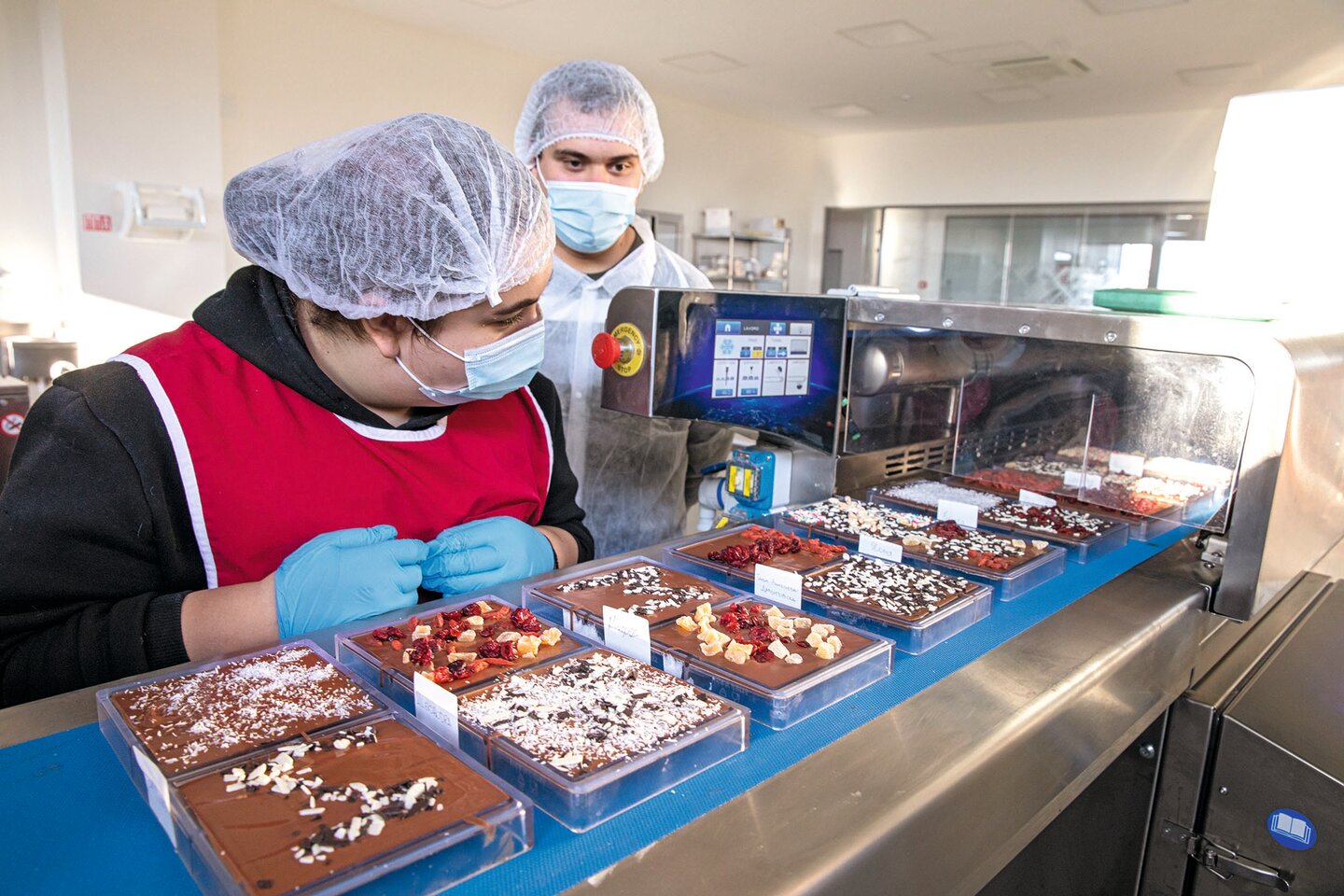
Irina and her colleagues work at the company two days a week and go to school on the other three days. “I really like it,” says Irina, as she decorates a chocolate bar in the company's training workshop. “Here I can directly apply what I've learned at school, for example about food hygiene,” she says. Vancho Prke was one of the first schools to offer the new vocational training program. It has quickly become a successful model: While 20 students are completing their apprenticeship together with Irina this year, 74 young people have already enrolled on the fourth course, which started last summer. And the figures are also impressive nationwide. When the dual system was introduced in 2017, initially only one company and one school took part, says Natasha Janevska from the Chamber of Commerce. "Today, 560 companies and 69 of the 73 schools offering vocational training at are taking part. If that's not a success story, I don’t know what is!"

Attractive jobs
Ferizaj is in southern Kosovo, close to the border with North Macedonia. Erisa Spahiu, 21, arrives slightly breathless on the first floor of the regional branch of Speeex, a service company for telecommunications providers. Just a moment ago, the job trainer was sitting on an upper floor of the modern office building in the call center, listening in on customer conversations. “For quality assurance,” she says. In Swiss German. Erisa grew up in Bellach in the canton of Solothurn. She went there as a three-year-old, when her mother moved with her children to live with their father, who was already living in Switzerland. When Erisa was 16 years old, the family moved back to Kosovo, her parents' home country. “It was a culture shock for me,” says Erisa, who had just finished secondary school in Switzerland at the time. She spoke Albanian reasonably well, but she had never become truly familiar with the language. “My language was German, my culture was Swiss. I was always punctual and a bit of a nerd.”
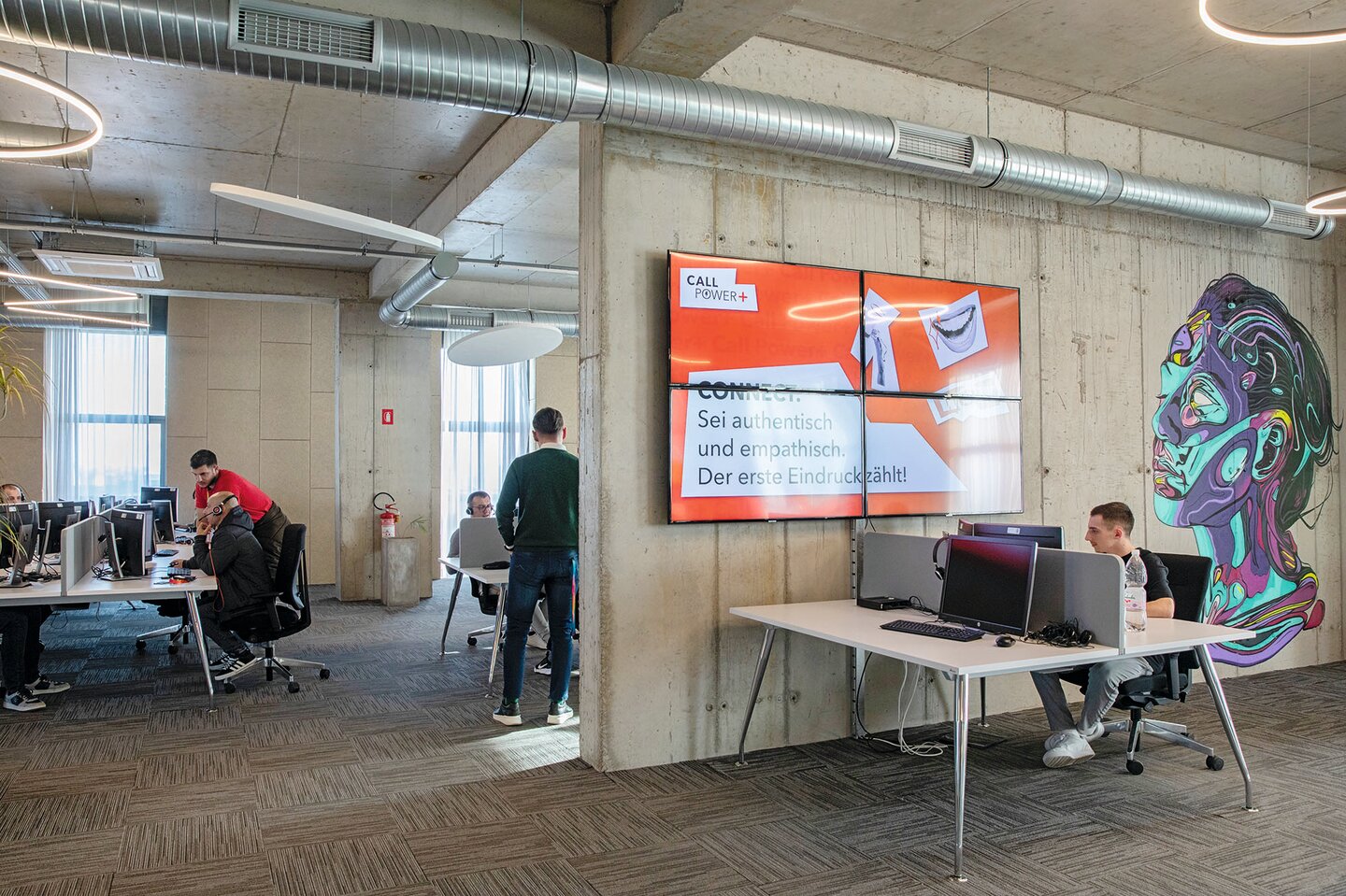
These are the best prerequisites for a job at Speeex. The company was founded in 2016 by Fikret Murati, 42, who grew up in Reiden in the canton of Lucerne as the son of Kosovan parents. After dropping out of training in the care sector, he switched to the telecommunications industry, where he quickly made a career for himself. In 2016, he received a request from a former employer, a large Swiss telecommunications company, to set up a call center for Swiss customers in Kosovo. Fikret, who was looking for a new job at the time, agreed. He joined in Pristina, the capital of Kosovo, in a company with 25 employees. He took over the company, and just one year later his company had grown to 250 employees. Today, nine years after its founding, Speeex employs over 2,000 people at seven locations in the country, providing services for Swiss telecommunications companies.
Fikret welcomes me to the headquarters of Speeex, a large modern glass building in Pristina, the capital of Kosovo. When asked about the secret of his company's success, he tells me he started out by specifically recruiting young people who fled to Switzerland or Germany with their parents during the Kosovo war at the end of the 1990s or were born in one of these countries and later came back to Kosovo. “Thanks to them, we were able to serve Swiss customers in their national languages right from the start, and that was exactly what my client wanted,” recalls Fikret.
However, with rapid growth, it soon became difficult to find enough people who spoke a Swiss national language. This is why Fikret, together with experts from Helvetas, set up the company's own training center “Speeex Education” at an early stage. There, prospective employees spend three to six months not only acquiring the specialist knowledge they need to support Swiss customers, but also learning German, Italian or French.
Erisa Spahiu, Job trainer at Speeex, moved from Bellach in Switzerland to Kosovo
“And, if they don't know Switzerland from their own experience, we teach Swissness, too,” says Fikret. “In our training courses, trainees learn how Switzerland functions politically and culturally, and what is important when dealing with Swiss people.” Speeex employees can also learn Swiss German at the in-house training center. “The customers of our clients don't even notice that their contact person is not based in Switzerland, but in Kosovo.” This is in large part due to this broad training, which is open not only to future employees but to anyone interested. Speeex is now such an attractive employer that many young people with roots in Kosovo also move to their parents' home country to work at Speeex. Just recently, the company targeted its search for employees in Switzerland and Germany – 700 registered, and 200 took the plunge and now live and work in Kosovo.
Western Balkans Context
The “Western Balkans” include Bosnia and Herzegovina, Serbia, Montenegro, Albania, Kosovo and North Macedonia. Political and ethnic tensions are on the rise again in the region; due to a lack of prospects, many people are migrating. As part of the Swiss contribution to selected EU member states, Switzerland invests in reducing economic and social inequalities within the European Union and promotes the rule of law, democracy, the social market economy and civil society. Helvetas is responsible for numerous projects on behalf of the SDC that create economic prospects and strengthen social cohesion. Special attention is paid to young people, women, Roma, people with disabilities and LGBTQI people. The SDC now intends to withdraw from Albania for a limited period of time. Helvetas, meanwhile, is convinced that only a strong and inclusive society can create stability.- MLI
Giving citizens a voice
Veliko Gradište is a small town in eastern Serbia. Around 20,000 people live here. Dujan Stojkovic and Živosav Simic, a retired forestry worker and a village school teacher, are sitting on a small playground on the outskirts of the town. “This playground was built on our initiative,” the two men proudly say. They are the founders of the Roma association “Rom,” which represents the 3,500 Roma in the community and plays a key role in ensuring that they are well integrated, which is not the case in other places in Serbia.
The proposal to build this playground was put forward at last year's municipal assembly, during which citizens also discussed other initiatives. This is not a regular practice Serbia: Although legally obliged to do so, many municipalities hardly involve their citizens in decision-making processes or not at all, often due to a lack of experience managing citizen participation.
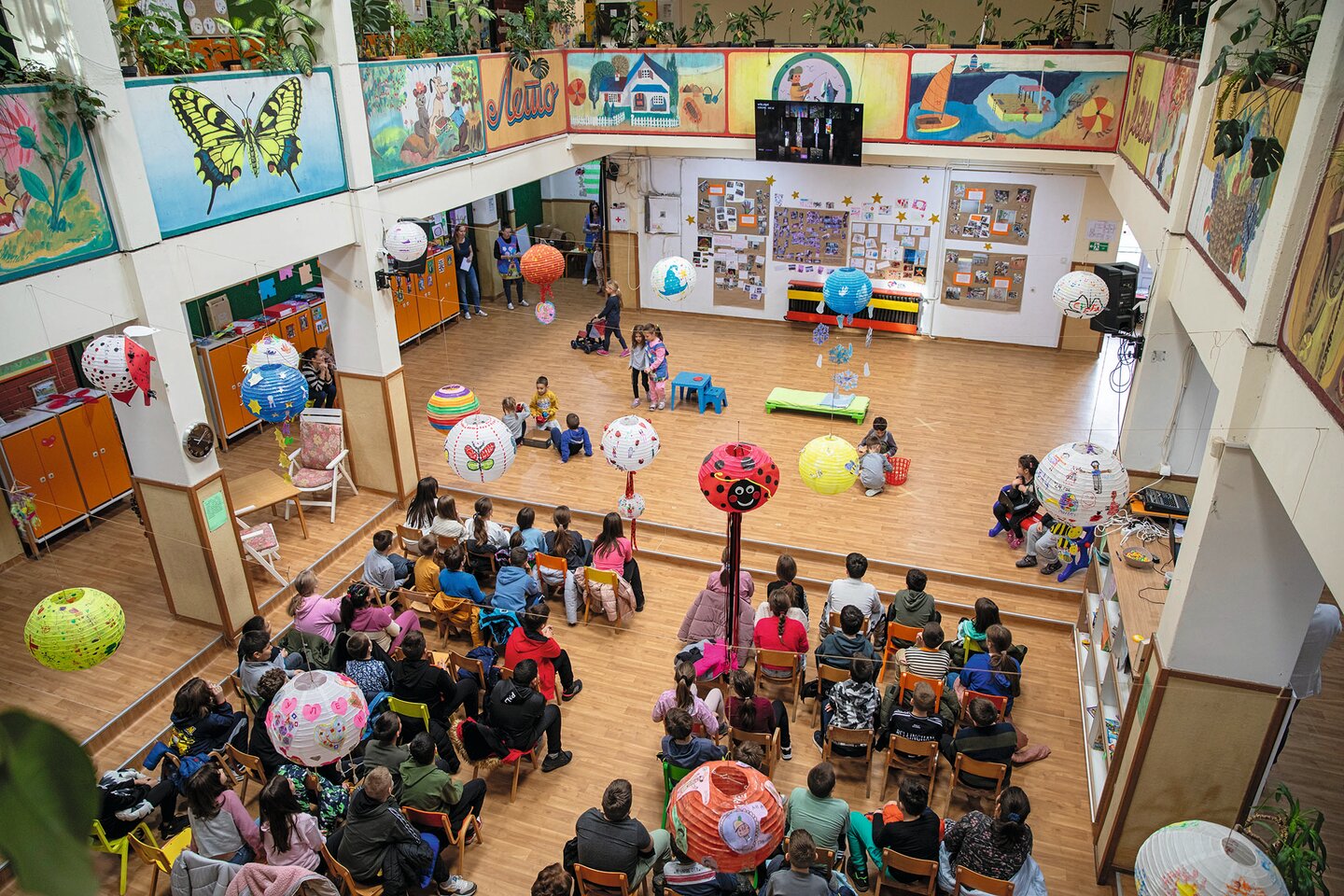
For this reason, Serbia's government has asked Switzerland, with its experience in direct democracy, to strengthen the participation of the population in Serbian municipalities as part of international agreements. On behalf of the SDC, local employees of Helvetas are supporting employees of 15 municipalities in this process. In an initial phase, Helvetas supported the municipalities in effectively collecting the property and business taxes to which they are entitled by law – something that many municipalities had not previously done due to a lack of knowledge and resources. “As a result, many municipalities have massively improved their economic situation in a short space of time,” says Melina Papageorgiou, the person at SDC who is responsible for advising local authorities in the region. The second step was to “give something back to the citizens,” as Melina puts it, in return for the higher costs.
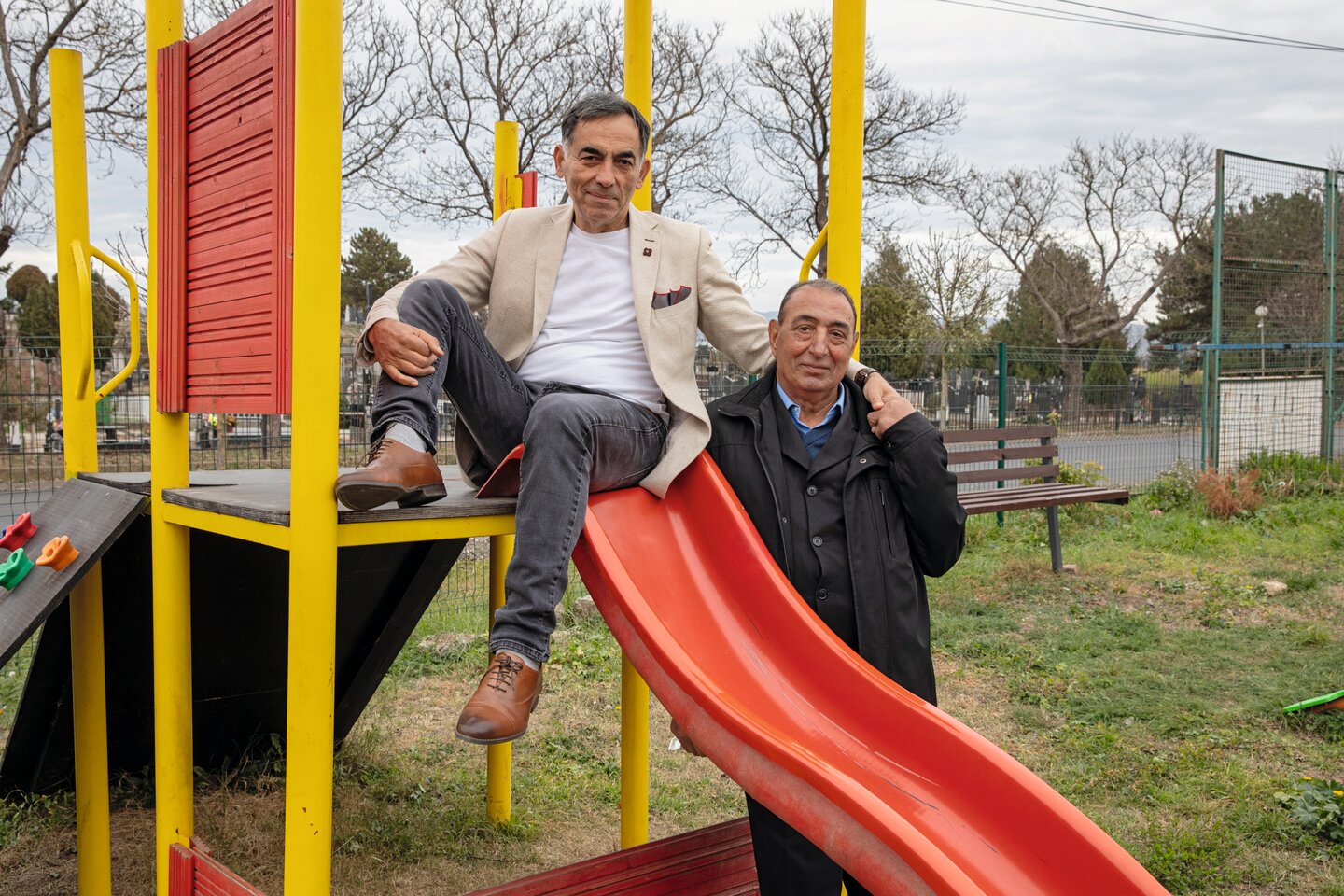
In concrete terms, this means that the population now has a say in what should be done with the tax money collected. At numerous information events, Helvetas employees showed citizens who were unfamiliar with such direct democratic rights how they can get involved as individuals or as associations.
The success is clear to see: Last year alone, 146 recommendations from the population were supported. In Veliko Gradište, this has led to streets being widened, benches installed and parks landscaped in recent years. And the playground initiated by Dujan and Živosav can now be found on the outskirts of the town, where mainly Roma live.
Patrick Rohr is a freelance photojournalist and Helvetas ambassador. In this role, he regularly visits Helvetas projects and reports on them not only in the Helvetas media, but also in reports for “Schweiz am Wochenende” and other newspapers.


